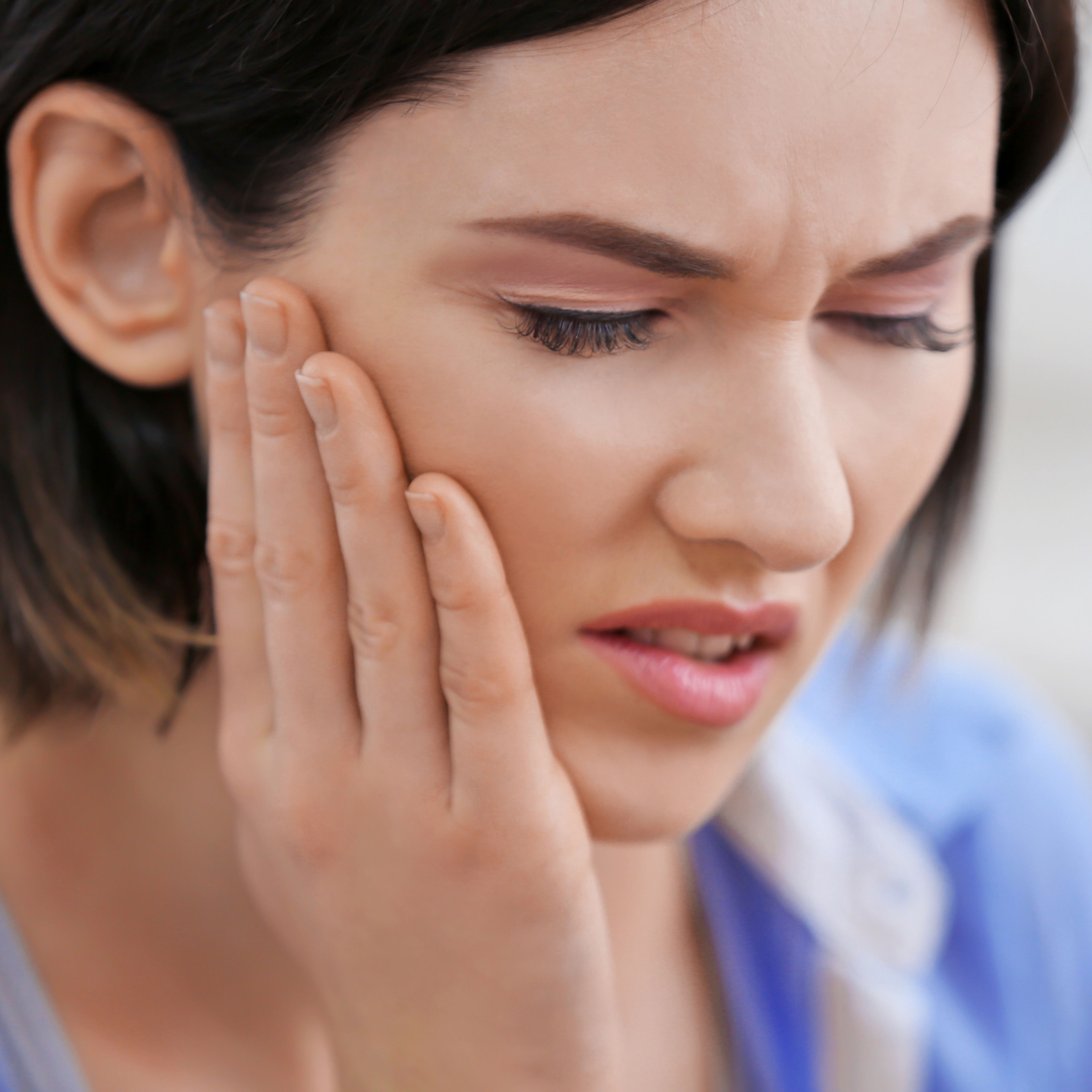TMJ Symptoms
At Ridgewood Dental Associates, our dentists provide comprehensive care that maintains the health of the teeth, gums, and jawbone. We realize that, for a patient to enjoy optimal oral health, all of these parts of the mouth must be healthy and functional. One of the most common concerns regarding the health and function of the jawbone is TMJ disorder. TMJ disorder is a condition that specifically affects the temporomandibular joints that connect the jaw to the upper skull. Our dental specialists are happy to provide TMJ treatment to restore function to the temporomandibular joint and relieve discomfort. Here we will go over some of the most common TMJ symptoms that may alert our Ridgewood, NJ, patients that it is time to seek TMJ treatment with our experienced dentists.

Discomfort
The most common symptom of TMJ disorder is discomfort. Most patients will feel mild tenderness around the jaw and cheekbone, but this pain can sometimes be more severe. It is also common for pain and tenderness to radiate beyond the jaw. TMJ disorder can cause aches in the neck, shoulders, and face. Earaches and headaches are also frequent concerns for many patients with TMJ disorder. When pain or discomfort is consistent, patients should consult with both their general physician and dentist to pinpoint the cause of the problem. If jaw and facial pain are accompanied by any of symptoms mentioned below, it is highly likely that the patient is dealing with TMJ disorder.
Difficulty Chewing
Difficulty chewing is a significant sign that TMJ disorder may have developed. TMJ disorder causes inflammation in the temporomandibular joints, which can make it difficult for the jaw to open and close fully. This can compromise a person’s ability to bite or chew food. Even if the patient manages to eat, they are likely to experience some discomfort while chewing. Many TMJ patients report that they have suffered from pain in the jaw or ears when biting down and chewing food. These individuals may also hear a clicking or popping sound as they chew their food, which is another common symptom of TMJ disorder.
Lockjaw
Not only does TMJ disorder make it difficult to open the mouth fully, but it can also cause the jaw to become temporarily stuck in place. This condition, which is commonly referred to as “lockjaw,” may occur when the mouth is in the open or closed position. This symptom may be eased with the application of warm compresses or with a light massage. Fortunately, lockjaw usually lasts no more than a few minutes, but this condition can recur frequently if TMJ disorder is not treated.
Clenching and Teeth Grinding
Clenching and teeth grinding are medically referred to as bruxism. Bruxism is a usual symptom of patients with TMJ disorder. Most patients with bruxism clench and grind their teeth unknowingly while they sleep at night, but patients with TMJ disorder may notice that they clench or grind the teeth throughout the day as well. Unfortunately, bruxism may worsen other TMJ disorder symptoms, and can also cause structural damage to the teeth.
Contact Us
If you are experiencing any of the symptoms of TMJ disorder, our team at Ridgewood Dental Associates may be able to help. Contact us at your earliest convenience to learn more about TMJ treatment, and how it can relieve you from discomfort.







